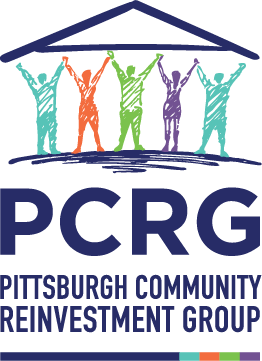As summer comes to a close, critical decisions at the local, state, and federal level are shaping the policy landscape. From overdue state budgets and federal rollbacks to bipartisan housing efforts, here’s where things stand—and where PCRG is focused this quarter.
City of Pittsburgh: Housing Legislation Moves Forward
In July, Councilwoman Deb Gross reintroduced legislation tied to the City of Pittsburgh’s Housing Needs Assessment, a key package addressing zoning barriers to housing affordability. The legislation includes several long-supported reforms such as:
Inclusionary Zoning (IZ)
Transit-Oriented Development (TOD)
Accessory Dwelling Units (ADUs)
Reductions to parking minimums
While the full package awaits a City Council Public Hearing (TBD), council already passed the minimum lot size reduction as a standalone measure — marking progress toward more flexible, equitable zoning policies.
Councilwoman Gross also introduced legislation that would regulate short-term rentals (STRs) by requiring business licenses and incorporating STR zoning changes into city code. This proposal was held in committee and is expected to return in September for further deliberation.
State Budget Delayed: Housing Preservation Still on the Table
The Pennsylvania state budget is now more than a month overdue, with the State Senate not scheduled to reconvene until mid-August. Disagreements persist around how to use the state’s reserves and generate revenue to close fiscal gaps.
Key updates include:
The Democratic-led House passed a $50 billion budget, falling just short of Governor Shapiro’s $51 billion proposal
Revenue proposals include recreational cannabis legalization and taxation of skill games
The state holds $9 billion in reserves, but concerns are growing about using these funds to offset expected Medicaid cuts at the federal level
Despite the delay, there’s good news: the Housing Preservation Program — a continuation of the Whole Home Repairs program — was included in the House budget at $50 million. PCRG continues to advocate for this funding to be maintained in the final budget agreement.
Federal Financial Policy: CRA Rollback and Section 1071 Stalls
Community Reinvestment Act (CRA)
In a troubling move, federal banking regulators announced plans to rescind the 2023 CRA modernization rule, reverting back to the outdated 1995 framework. This undermines efforts to hold banks accountable in the digital age and fails to reflect the realities of today’s financial landscape.
PCRG will submit public comments opposing the rollback and advocating for a CRA that supports equitable investment across disinvested and underserved communities.
Section 1071 and Small Business Lending Transparency
The Consumer Financial Protection Bureau (CFPB) issued an interim final rule last month delaying compliance deadlines for Section 1071 by one year. Though the delay applies broadly, the CFPB also updated its enforcement policies to deprioritize penalties and allow for a grace period during ongoing litigation.
Meanwhile, industry groups like the American Bankers Association (ABA) continue to challenge the rule in court. The CFPB has indicated it will launch a new rulemaking process to revisit its 2023 rule. PCRG continues to defend Section 1071 as an essential tool for small business accountability and equitable lending.
Federal Budget & Housing Legislation: What’s Ahead
FY 2026 Federal Budget Negotiations
Congress faces a September 30 deadline to pass all federal appropriations bills for Fiscal Year 2026 — or risk a partial government shutdown.
The President’s proposed budget includes deep cuts to federal programs, including HUD
The House housing appropriations bill proposes $68 billion for HUD, cutting funding for HOME and fair housing enforcement
The Senate version proposes $73 billion, preserving funding for CDBG and NeighborWorks
PCRG will monitor reconciliation efforts and issue calls to action as the full Senate and House prepare to vote.
“One Big Beautiful Bill” and Its Tradeoffs
The “One Big Beautiful Bill (OBBB)”, which congress passed, and the president signed last month, proposes extending 2017 tax cuts while introducing a $3.5 trillion deficit over the next decade. It includes:
Cuts of up to $1 trillion to Medicaid, the largest rollback in program history
Enhancements to Opportunity Zones (OZ), New Markets Tax Credits (NMTC), Low-Income Housing Tax Credits (LIHTC), and other community reinvestment tools
While the bill boosts several place-based initiatives, PCRG strongly opposes the devastating Medicaid cuts and continues to push for inclusion of the Neighborhood Homes Investment Act (NHIA) in a future legislative package or proposal.
ROAD to Housing Act: Bipartisan Momentum for Housing Reform
In an encouraging sign, the ROAD to Housing Act of 2025 was introduced by Senators Tim Scott (R) and Elizabeth Warren (D) — marking the first bipartisan housing package in over a decade.
This sweeping legislation passed out of committee 25-0 on July 29 and includes:
Federal support for zoning reform and streamlining approvals
Expansion of modular and manufactured housing
Conversions of vacant properties to housing
A federal version of the Whole Home Repairs Program
Increased CDBG funding for communities accelerating housing supply
PCRG supports the ROAD Act’s passage and will issue updates and action alerts as it moves to the full Senate floor.

